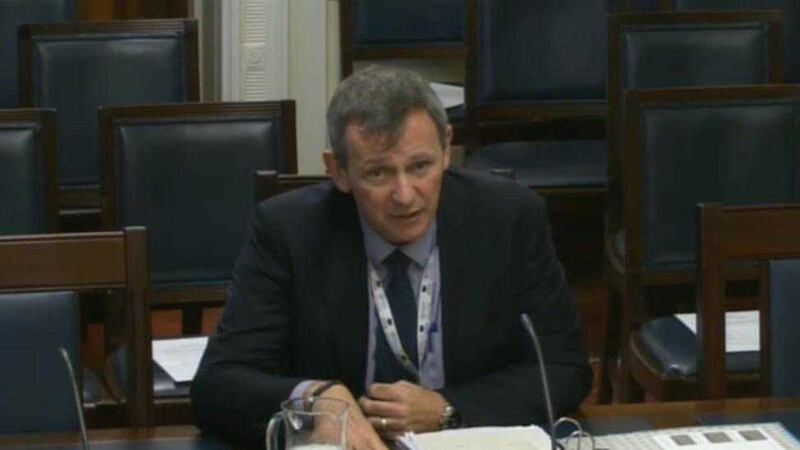SENIOR civil servants are risk averse and solidarity within Northern Ireland’s executive is weak, according to a team of international experts.
Making some 30 recommendations for improvement, the OECD (Organisation for Economic Cooperation and Development) has called for more collective thinking at the heart of the Stormont government.
Mari Kiviniemi, OECD deputy secretary-general, said: “The Northern Ireland executive should adopt a more joined up approach that breaks down administrative silos to pursue integrated outcomes for people more effectively and more inclusive growth for the region.”
The OECD was commissioned to carry out its review of public sector governance in 2014 by former finance minister Simon Hamilton.
Researchers conducted a series of fact finding missions in Belfast and Londonderry and spoke with representatives from the public sector, business, civil organisations and the academic community.
They focused on assessing reform in three key areas; improving strategic approaches to decision making, improving engagement with people and improving operational delivery to citizens and businesses.
In a 512-page report launched at Parliament Buildings a number of issues around decision making were identified.
It said: “Policy making in Northern Ireland continues to be defined by narrow concerns lodged within departmental silos, with bottlenecks being resolved politically at the executive table.
“This could also stem from the lack of supportive signals from the executive itself to work collectively and collaboratively as a single government.
“Solidarity among members of the executive is evidently weak, which undermines the principle of collective responsibility for decision making and the concomitant role the civil service, notably its senior ranks ought to play in supporting it.”
The programme for government (PfG), which presents the priorities and initiatives for executive ministers, was described as the most important strategic planning document.
And although experts said the draft PfG agreed in May and which is currently out for consultation, was “significantly better” than the previous two, there was still room for improvement with better cooperation between the Finance Department and Executive Office among the priorities.
The review added: “Foremost Northern Ireland must overcome the administrative silos which hamper the ability of the public sector to work horizontally in pursuit of policy and programme design and implementation.
“This will require changes in the way Northern Ireland tackles public policy challenges and considers opportunities.”
Meanwhile, experts also looked at the impact of restructuring and concluded it was “too early to say definitively” whether the reduction in local councils and government departments would result in both savings and improvements in efficiency and effectiveness.
However, the transfer of planning powers to local authorities was praised as a positive move. Other recommendations emanating from the OECD review include strengthening transparency and accountability mechanisms to build trust; investing in skills to support innovation as well as enhancing international engagement in digital government. The executive has accepted all but two of the recommendations.
Finance minister Máirtín Ó Muilleoir, left, said: “We all share a desire to improve our public services.
“While the report outlines much of what is good in our public sector, it also points to some challenges which will need to be addressed if our public services and wider society are to continue to flourish. It is time for action and I am confident that as a united and forward looking Executive we can make real progress in driving forward these recommendations.”
DUP junior minister Alastair Ross said: “The OECD report allows us to benchmark ourselves against other countries, see what we are doing well and what we need to improve and gives us renewed impetus to work together to deliver these commitments and create a better Northern Ireland for all our citizens.”



